Part Analysis
| General Data | |
| Manufacturer (OEM) | Seasonic |
| PCB Type | Double-Sided |
| Primary Side | |
| Transient Filter | 4x Y caps, 2x X caps, 2x CM chokes, 1x MOV |
| Inrush Protection | 1x NTC Thermistor MF72 5D-20L (5 ohm) & Relay |
| Bridge Rectifier(s) |
2x GBU1508 (800V, 15A @ 40°C)
|
| APFC MOSFETs |
2x Alpha & Omega AOB125A60L (600V, 18A @ 100°C, Rds(on): 0.125Ohm)
|
| APFC Boost Diode |
1x Infineon IDK08G65C5 (650V, 8A @ 145°C)
|
| Bulk Cap(s) |
1x Nichicon (400V, 820uF, 2,000h @ 105°C)
|
| Main Switchers |
4x Alpha & Omega AOB190A60C (600V, 12A @ 100°C, Rds(on): 0.19 Ohm)
|
| Resonant Controller |
Champion CU6901VPA
|
| APFC Controller |
Champion CM6500UNX
|
| Topology |
Primary side: APFC, Full-Bridge & LLC converter
Secondary side: Synchronous Rectification & DC-DC converters |
| Secondary Side | |
| +12V MOSFETs | 6x Nexperia PSMN1R4-40YLD (40V, 214A @ 100°C, Rds(on): 1.4mOhm) |
| 5V & 3.3V | DC-DC Converters: 6x Nexperia PSMN4R0_30YLD (30V, 95A @ 100°C, Rds(on): 4mOhm) PWM Controller(s): Anpec APW7159C |
| Filtering Capacitors | Electrolytic: 3x Nichicon (2-5,000h @ 105°C, HD), 1x Nippon Chemi-Con (1-5,000h @ 105°C, KZE), 5x Rubycon (3-6,000h @ 105°C, YXG) 2x Rubycon (6-10,000h @ 105°C, ZLH) Polymer: 20x Nippon Chemi-Con, 7x FPCAP |
| Supervisor IC | Weltrend WT7527RA (OVP, UVP, OCP, SCP, PG) |
| Fan Controller | Nuvoton M031FB0AE |
| Fan Model | Hong Hua HA13525H12F-Z (135mm, 12V, 0.50A, Fluid Dynamic Bearing Fan) |
| 5VSB | |
| Rectifier |
DK DK5V45R10S (45v, 10mOhm)
|
| Standby PWM Controller |
Excelliance MOS EM8569C
|
Despite the small PCB, plenty of space is available, and the distance between parts is large to allow for enhanced airflow. The large vertical PCBs on the sides allow for an uncrowded PCB. One holds the APFC converter and the main FETs, while the other daughterboard holds both DC-DC converters that generate the minor rails. Seasonic used surface-mounting FETs with tiny heatsinks since the PCB also cools them. This is an interesting design to have a vertical board holding a significant part of the PSU’s primary side. Speaking of the primary side, a full-bridge topology is used for enhanced reliability and increased efficiency. On the secondary side, the 12V FETs are installed on the top PCB side, so they come in direct contact with the fan’s airflow.
Overall, the soldering quality is good, and all parts that Seasonic used are of high quality, including Nichicon, Rubycon, Chemi-Con, and FPCAP capacitors, along with Alpha & Omega and Nexperia FETs. Moreover, the cooling fan is by Hong Hua, Seasonic’s favorite fan manufacturer.
It is always nice to see a new PSU design since technology in this IT sector doesn’t move as fast as in other sectors (e.g., CPUs and GPUs). That said, I would like to see the MCU handling more parts and not only playing the role of the fan controller. Nonetheless, having a digital fan controller is great since its programming is easy and provides more options than analog fan controllers. Still, you have to program it correctly, though, and creating a good fan profile is easier said than done.

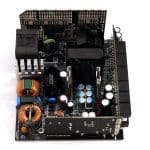
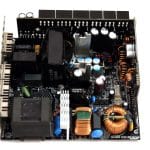
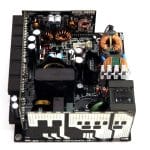
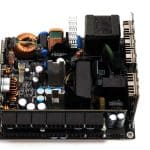
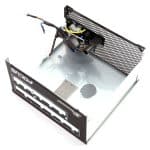
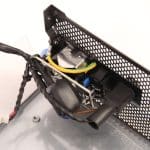
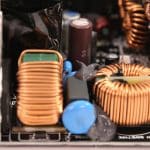
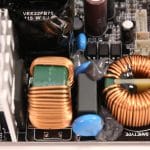
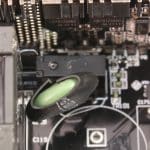
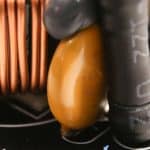
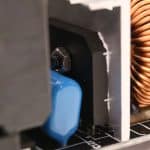
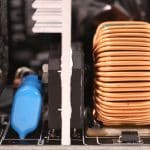
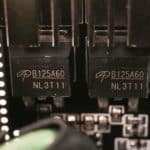
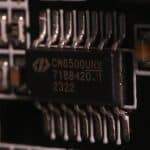
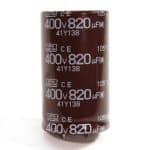
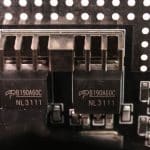
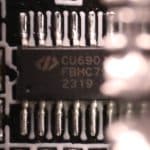
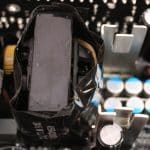
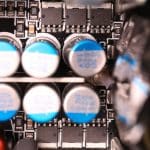
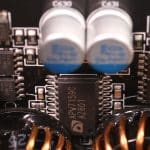
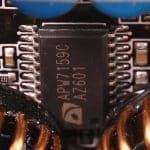
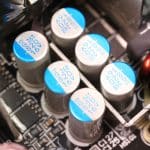
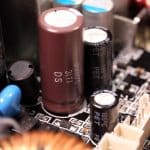
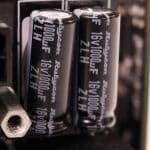
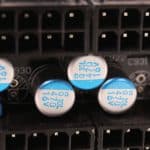
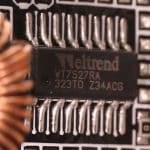
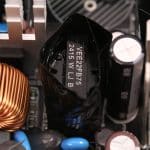
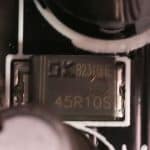
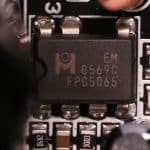
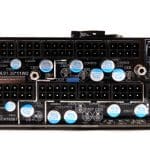
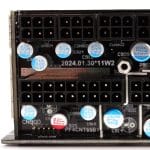
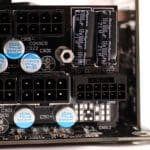
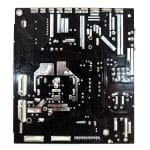
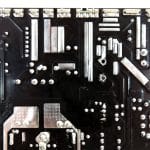
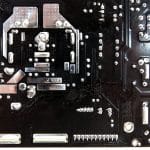
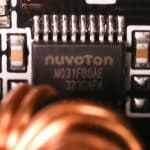
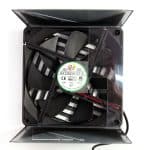
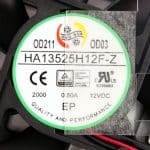
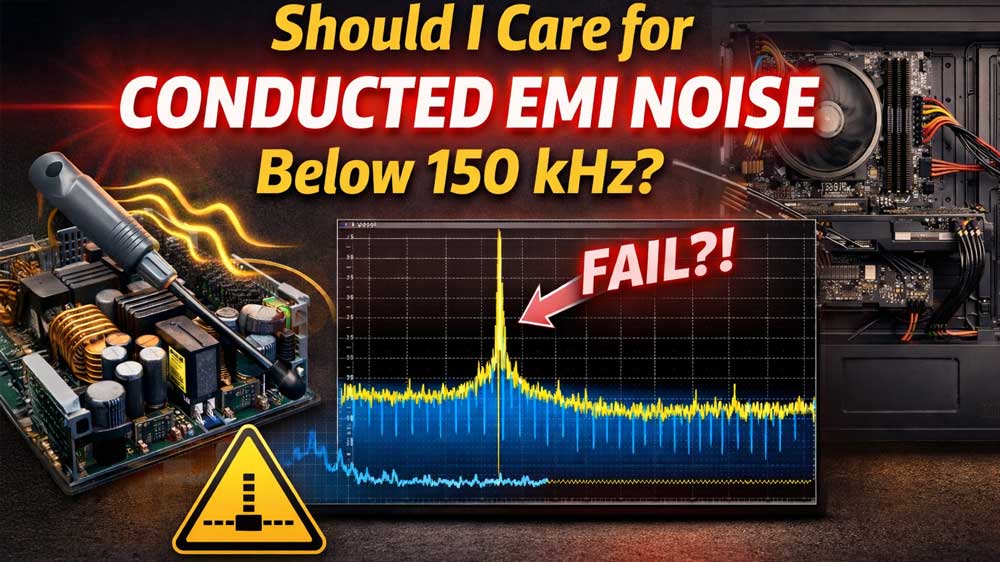
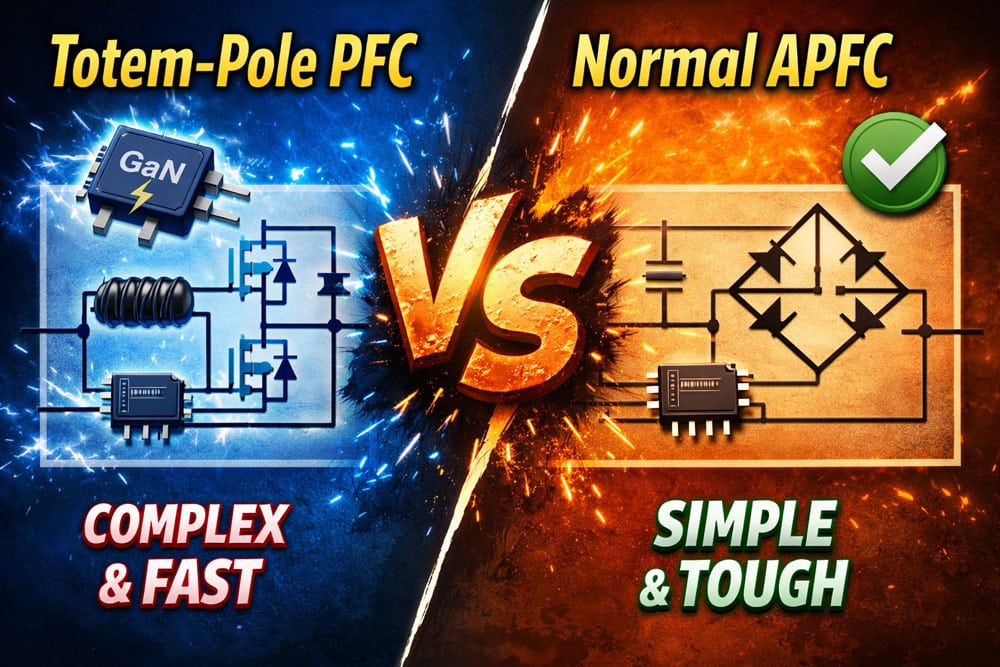
Hi there,
I build a new computer , please tell me wich PSU should I get: Seasonic FOCUS GX 1000W v4 Atx 3.1 or Corsair RM1000x ATX v3.1.
Thank you!
Corsair
The downfall of seasonic must be studied.
Hi, Is there a chance for Phanteks AMP GH 1000W 80 Plus Platinum ATX 3.1 review ????
Unfortunately I don’t have any connection with Phanteks anymore.
Thank you for the great review! I’m personally waiting for the ATX3.1 compliant Vertex PX-1200. But a sales rep from Seasonic told me those are currently only available in Asians markets at the time. Do you maybe have an estimate when the ATX3.1 versions of the Vertex series become available in the EU?